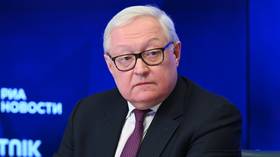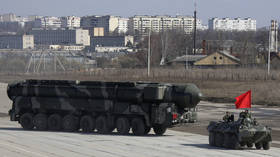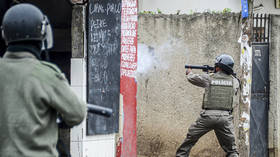Russia may drop moratorium on intermediate-range missiles – top diplomat

Russia considers the revival of intermediate-range nuclear-capable missiles by the US as “irrevocable” and may field some of its own, potentially in tandem with China, the Deputy Foreign Minister of Russia, Sergey Ryabkov, said on Thursday.
The now-defunct Intermediate-Range Nuclear Forces (INF) Treaty was signed by Washington and Moscow in the late 1980s, and banned either side from developing and deploying certain types of missiles. The goal was to defuse tensions in Europe and to reduce the risk of an accidental nuclear exchange.
The US announced its withdrawal from the INF treaty in 2018, claiming that Russia was in breach and stating that Washington had a need for such weapons, not least because China wasn’t bound by the bilateral agreement.
Russia and China discussed America’s plans this week, when Foreign Minister Sergey Lavrov traveled to Beijing, Ryabkov added. The proposed approach of “double counteraction” may require Russia to drop its current policy of maintaining a unilateral moratorium on the previously-banned weapons, Ryabkov said. The current policy is that unless the US deploys land-based intermediate-range missiles within the range of Russia, Moscow would not field them either.
“As American plans become increasingly concrete, we, too, as I understand it, are shifting to practical implementation of our response. This fully relates to the European direction,” the diplomat explained.
Ryabkov did not say whether possible US deployment of intermediate-range missiles in Asia that could target China but not Russia, may result in Moscow changing its posture.
The “double counteraction” concept was mentioned during a joint press conference that Lavrov and his Chinese counterpart Wang Yi held on Tuesday. The Russian diplomat said it was proposed by Beijing and would be directed against attempts by the US and its allies “to freeze the formation of a multipolar world.” The two nations will “stand back-to-back” and will seek the support of like-minded nations in their drive for a more just and democratic world order, he vowed.













